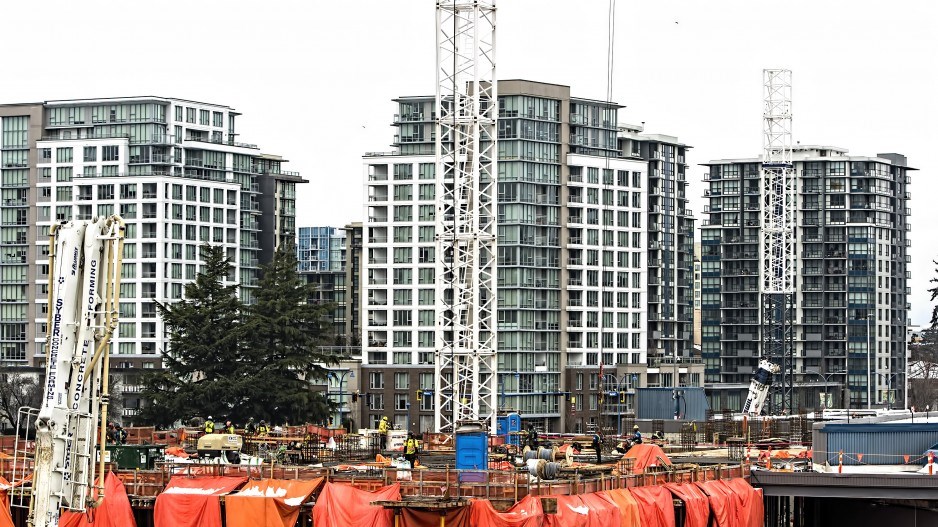A “perfect storm” of market conditions is threatening the delivery of rental housing in В鶹ҙ«ГҪУі»ӯand across Canada, according to the Canada Mortgage and Housing Corp. (CMHC).
Rapidly rising interest rates, high construction and government fees, as well as taxes and levies have complicated the financial feasibility of new rental projects, states a Dec. 18 report commissioned by the crown corporation.
“Developers today are responding to a ‘perfect storm’ over the last three years in Canada – construction costs are up by over 50 per cent, conventional lending rates have more than doubled and government fees in markets such as В鶹ҙ«ГҪУі»ӯand Toronto have increased to over 25 per cent of construction budget costs,” said the CMHC’s report, which was authored by financial services firm Ernst & Young LLP (EY).
Roughly nine out of 10 of the Canada-wide rental housing developers who responded to the survey said that purpose-built rental projects are no longer feasible with conventional debt financing.
“With all of these different variables coming into play, it's extremely difficult to make the math work to build new rental projects. I don't know if you can call it a financial challenge trifecta, but it's impacting the rental supply of tomorrow and potentially exacerbating the supply challenges that we're already facing today,” said CMHC economic specialist Tania Bourassa-Ochoa.
“The expectations of future rental projects that are in the pipeline are actually being reduced, so this is further exacerbating the difference between rental and demand.”
Rental projects are required to pay the same upfront costs as condominiums projects such as development charges and certain taxes. But rental projects lack some advantages of condo projects, such as advanced capital through presales or the ability to pass on taxes to the end user. This, combined with high costs, means that the construction of building purpose-built rentals is limited to well-capitalized developers, according to the report.
These larger developers are now a “crucial player in the ecosystem,” said Bourassa-Ochoa.
The availability and cost of financing was described by roughly 60 per cent of respondents as “very difficult.” In contrast, approximately 50 per cent of respondents have historically described availability of cost and financing as “not difficult.”
The EY survey in the report was conducted prior to the announcement of the federal government waiving the goods and service tax (GST) on new rental construction, in addition to the announcement of $20 billion in low-cost financing for multi-unit rental construction through the Canada Mortgage Bond program.
Tim Grant, president of PCI Developments, said in a that the GST waiver and other government policies around land use, such as the new transit-oriented development legislation, will help spur some activity.
“There’s no question there’s lower financial returns [on rentals] than condo housing, and naturally your margin for big issues is narrower,” he said, adding the GST waiver makes it more likely his company will start working on a project in 2024 that was previously unfeasible.
But McGregor Wark, vice-president of real estate investment firm Headwater Projects, said the GST waiver has been overshadowed by the increase in Metro В鶹ҙ«ГҪУі»ӯdevelopment cost charges (DCC).
“The waiver of GST for rental housing – that was fantastic. It's a huge benefit. But then we got hit the following week with the Metro В鶹ҙ«ГҪУі»ӯDCC bump that basically absorbed any benefit that we would have generated from that GST reduction.”
Current rates are set to soar by as much as 73 per cent from current levels in 2026 as a result of to the existing bylaw, signed just a year earlier. These charges are collected by Metro В鶹ҙ«ГҪУі»ӯand go towards new liquid waste and waterвҖӢ infrastructure.
–With a file from Peter Mitham



